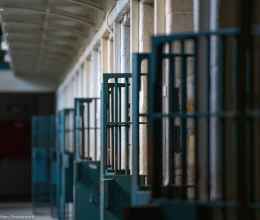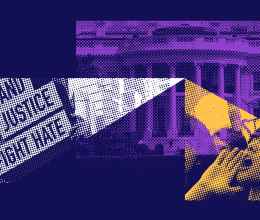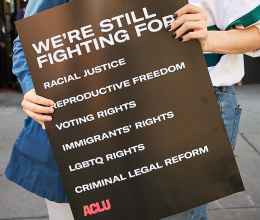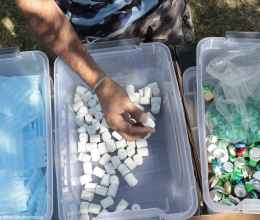
Tallahassee, FL -- In the last week incarcerated people have begun to test positive for COVID-19 in Florida’s jails and prisons. The main focus has been on Broward County, with one column claiming the Broward County Jail was a “ticking time bomb.”
But the threat is statewide. Earlier this week it was announced that four incarcerated people had tested positive at Blackwater River Correctional Facility in Northwest Florida. Multiple corrections employees have also tested positive at facilities throughout the state.
Members of the Florida Campaign for Criminal Justice Reform have previously called on Florida officials to ensure that the health and safety of people in jails, prisons and immigrant detention centers in the Deep South are being protected from the virus, and release those people most at risk of suffering serious complications or death. The coalition is now calling for every effort to be made to get people out of jails and prisons as quickly as possible.
The following is a statement from Carrie Boyd, policy counsel for SPLC Action:
“We aren’t letting people out of jails and prisons, and it does not appear we are actively testing prisoners to determine who has COVID-19, although it’s tough to say for sure since the Florida Department of Corrections hasn’t shared what it’s doing. The best answer to public health and humanitarian concerns is to get people out. Incarcerated people are highly vulnerable to outbreaks of contagious illnesses such as COVID-19. They are housed in close quarters and can’t practice social distancing.”
The following is a statement from Micah W. Kubic, executive director of the ACLU of Florida:
“Governor Ron DeSantis has the power to commute prison sentences, and he’s not doing it. There are roughly 96,000 people in Florida prisons right now, many of which shouldn’t be there in the first place. To avoid a major coronavirus outbreak, we need to safely reduce the prison and jail populations. Is it too much to ask to release those who do not pose a danger to society and are most vulnerable to COVID-19 - particularly the elderly and immuno-compromised? We need to act before it’s too late. Incarcerated individuals can’t socially distance and we don’t want people dying in prison due to inaction.”
The following is a statement from Denise Rock, executive director of Florida Cares Charity Corp., dedicated to improving the lives of the incarcerated:
“The men and women incarcerated in Florida know they’re in danger of a COVID-19 outbreak. Corrections employees know it too. It is not hard to imagine a situation where a serious infection sweeps through the prison system putting the lives of thousands of incarcerated people and FDC employees in danger. The Florida Department of Corrections won’t have enough healthy people to maintain order. This is a disaster waiting to happen unless the Governor is proactive. If he gets people out now, we can avoid the worst-case scenario.”






